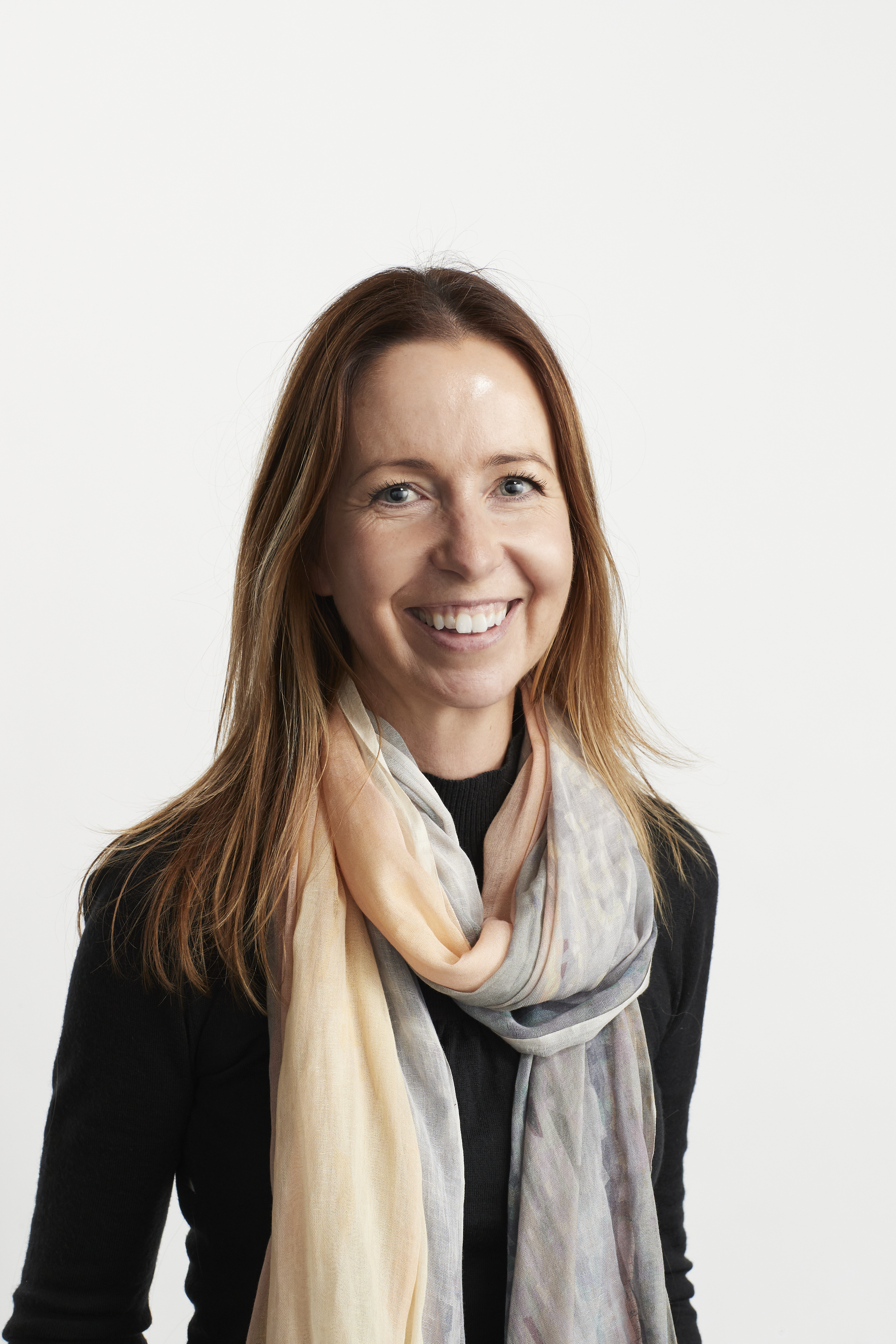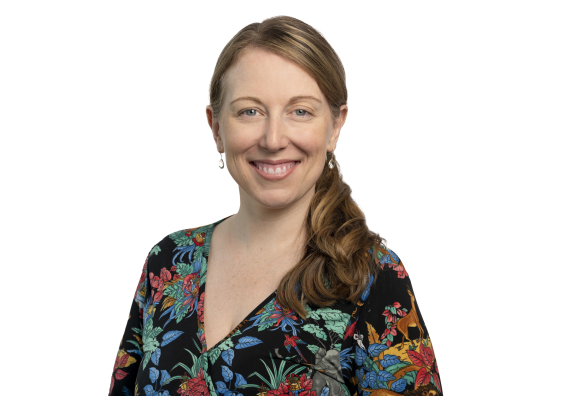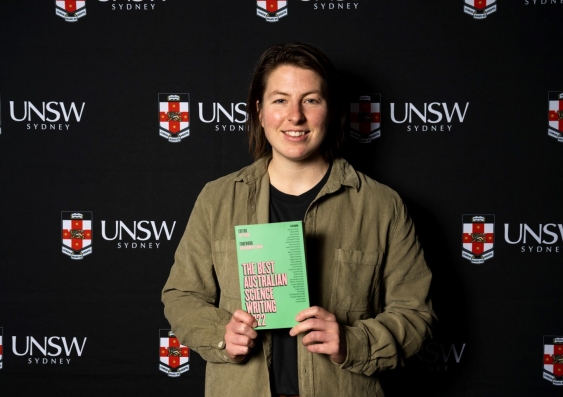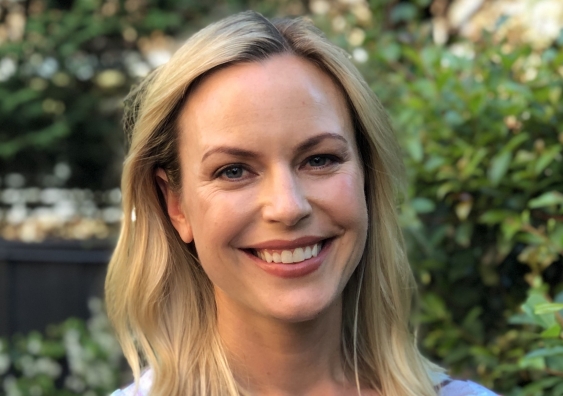From tears to triumph: uplifting journey through childhood cancer wins UNSW Bragg Prize
6 November 2024

Photo: Adobe Stock
Cameron Stewart, Chief International Correspondent at The Australian, wins the annual UNSW prize for science writing.
Cameron Stewart has been awarded the prestigious UNSW Press Bragg Prize for Science Writing 2024 for his story ‘Heroes of Zero’, originally published in The Weekend Australian.
Mr Stewart’s story introduces readers to the groundbreaking research being undertaken at the Children's Cancer Institute, where Professor Michelle Haber and her team are dedicated to combating childhood cancer in Australia.
‘Heroes of Zero’ will be published alongside the 33 longlisted entries to the prize in The Best Australian Science Writing 2024, NewSouth’s annual collection featuring the finest Australian science writing of the year.
“The backstory of long-term determination of everyone involved in this fight – from the 1960s to now – makes this a real and a very human journey which transcends science and is as much about the human spirit and determination as it is about test tubes and laboratories,” Mr Stewart said of his story.
Exploring decades of heartbreak, hope, and scientific breakthroughs, the story captures not only the raw emotion of families touched by childhood cancer but also the unwavering human spirit driving progress. Through deeply personal interviews, Mr Cameron navigates the emotional highs and lows of the journey towards a cure.
Mr Stewart said that he was inspired to write on childhood cancer by a former science journalist who alerted him to the long-term improving statistics on childhood cancer.
“As a non-scientist and as someone who has too often read about the tragedy of parents losing their children to cancer, I became curious and looked more closely at what was happening here to explore if there was a bigger human story to be told,” he said.
“Every interview was raw and incredibly emotional. It really brought home to me the power of the issue and also the joy –the unbridled joy – that somehow science was getting on top of this scourge.
“So, while it was a terribly sad issue, it was also a pleasure to report on something that was improving with every year. Ultimately it was a very uplifting story to write.”
Mr Stewart said he found it difficult speaking to the “remarkable and inspirational” parents who had lost their children but are still very much involved in the fight against childhood cancer. Yet, like an emotional rollercoaster, he found speaking to the parents whose kids had survived cancer incredibly uplifting.
“It transcended the story for me and put a smile on my face just as much as it did on theirs and their now thriving kids. It was easy to get swept up in that joy and forget that I was a reporter.”

UNSW Deputy Vice-Chancellor Academic Quality Professor Merlin Crossley, one of the judges for the 2024 Bragg Prizes, congratulated Mr Stewart on winning the Prize.
“Cameron Stewart’s story reminds us of the profound impact that science can have on real lives. By capturing both the heartache and the hope in the fight against childhood cancer, he’s shown how dedicated research is reshaping the futures of countless families and driving tangible progress.”
Bragg Prize runners up
Runners up prizes were awarded to Dyani Lewis for her story ‘The world’s oldest story is flaking away. Can scientists protect it?’ and to Amanda Niehaus for ‘Dog people’.
Ms Lewis’s story centres on the fragile, ancient cave art of Sulawesi, Indonesia, where paintings, some over 45,000 years old, face rapid deterioration. Efforts to preserve the artwork are underway, however experts fear this cultural heritage may be lost forever without immediate conservation action.
In ‘Dog People,’ Ms Niehaus reflects on her deep connection with her dogs, Quito and Tukee, and how these relationships highlight the human need for physical presence and companionship. Her story suggests the bonds we create with animals reflect our primal need for closeness, comfort and loyalty that digital connections can’t fulfill.
The UNSW Press Bragg Prize for Science Writing is an annual prize for the best short non-fiction piece on science written for a general audience. It is named in honour of Australia’s first Nobel laureates, William Henry Bragg and his son William Lawrence Bragg.
The Bragg Prize winner receives $7000 and two runners-up each receive a prize of $1500. The prizes and associated events are supported by the Copyright Agency Cultural Fund and UNSW Science.
The importance of counting butterflies
The UNSW Bragg Student Prize celebrates excellence in science writing by Australian high school students in years 7 to 10 and is supported by UNSW Press in conjunction with Refraction Media.
The 2024 Bragg Student Prize was won by Reena Du, a Year 10 student at Abbotsleigh in Sydney. Reena’s essay is titled ‘Biodiversity and community: Working together to protect the environment’. Her story delves into the importance of counting butterflies and what it can tell us about the health of the environment, as well as the important work carried out by Brisbane’s Big Butterfly Count.
The 2024 Best Australian Science Writing anthology
All shortlisted and winning stories are published in The Best Australian Science Writing 2024, NewSouth’s annual collection of the finest science writing of the year, which is now in its 14th year.
This year’s anthology is edited by Jackson Ryan and Carl Smith with a foreword by Corey Tutt, who founded DeadlyScience, a not-for-profit organisation to provide STEM resources and learning experiences to regional and remote schools in Australia.
Scientific topics raised in the anthology range from AI to the climate crisis, the long tail of the pandemic and the changing nature of what science looks like.
The book and the prizes support UNSW’s strategy to inform public debate about issues that directly have an impact on the community.
Media enquiries
For enquiries about this story or interview requests please contact Yolande Hutchinson:
Tel: 0420 845 023
Email: y.hutchinson@unsw.edu.au





